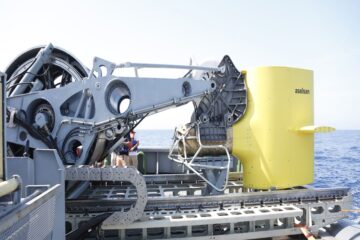The statement was made on 9 August after Greece and Egypt set up an exclusive economic zone in the region and a defense cooperation agreement between Cyprus and France came into force on August 1st.
Latest naval mobilisations in Eastern Mediterranean are extremely worrying. They will not contribute to finding any solutions. On the contrary, they will lead to a greater antagonism and distrust. Maritime boundaries must be defined through dialogue and negotiations, not through unilateral actions and mobilisation of naval forces. Disputes must be solved in accordance with international law. The European Union is committed to help solving such disputes and disagreements in this area of vital security interest. As the High Representative for EU’s Common Foreign and Security Policy, I will deploy all efforts necessary to re-establish such a dialogue and to facilitate re-engagement. The present course of action will not serve the interests neither of the European Union, nor of Turkey. We have to work together for the security in the Mediterranean.
EU foreign policy chief, Josep Borrell

The discovery of vast amounts of natural resources in the region in recent years has sparked a prospecting scramble by Greece, Turkey and Egypt as well as Cyprus and Israel.
Egypt and Greece are at odds with Turkey, which last year angered the two countries by signing a maritime delimitation agreement with the internationally recognized Libyan government, in a move that escalated disputes over potential offshore gas reserves in the eastern Mediterranean. Tensions were already high between Greece and Turkey because of Turkish gas exploration in the eastern Mediterranean off the coast of Cyprus. The NATO members are also at odds over mineral rights in the Aegean Sea.
Meanwhile, Turkish President Recep Tayyip Erdogan on Friday announced the resumption of Turkish searches for hydrocarbons in a disputed area of the eastern Mediterranean, following the signing of the agreement between Athens and Cairo. The agreement aims to demarcate the maritime borders between the two countries and appears to be a direct response to a similar agreement reached last November between Turkey and the official Libyan government.
The row between Greece and Turkey continued today with the two countries issues NAVTEX and counter-NAVTEX (NAVigational TEleX). Greece issued their NAVTEX after Turkey reserved an area South of the island of Kastellorizo for survey. The Greek counter-NAVTEX called on all vessels to disregard the Turkish NAVTEX “ALL MARINERS ARE REQUESTED TO DISREGARD NAVTEX MESSAGE NUMBER FA26-1024/20”.
Turkey has since responded with a third NAVTEX explaining that Turkish vessels will be conducting seismic survey in Turkey’s continental shelf in accordance with international law.
Greek media are now reporting that Turkey’s Oruc Reis search vessel has entered the Greek EEZ, escorted by Turkish navy vessels.






